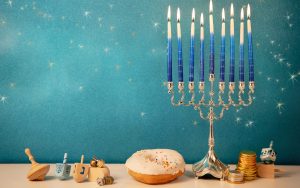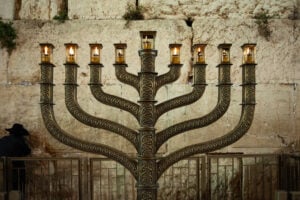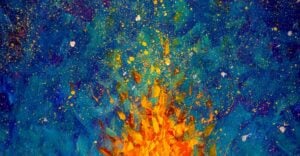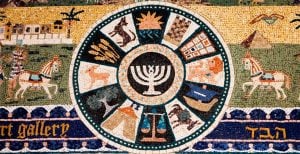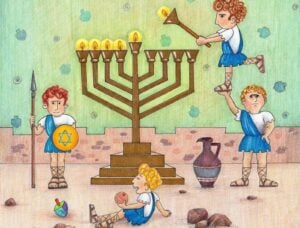Sukkot is a joyous festival beginning five days after Yom Kippur. It is also known as the Festival of Booths and the Feast of Tabernacles after the temporary booths or huts (Sukkot in Hebrew) in which Jews are supposed to dwell during this week-long celebration.
The Sukkah Hut
Why? According to Rabbinic tradition, Sukkot represents the Divine “clouds of glory” which surrounded the Israelites during their forty years of wandering in the desert after escaping from slavery in Egypt. For seven days and nights, the Sukkah is designated as home, for sleeping, eating and generally spending as much time in it as possible.
More Sukkot Traditions
• Another Sukkot commandment is the waving of the Four Species: an etrog (citron), a lulav (palm frond), three hadassim (myrtle twigs) and two aravot (willow twigs).
• It is customary each night of Sukkot to welcome one of the seven spiritual figures of Israel (Abraham, Isaac, Jacob, Moshe, Aaron, Joseph and David) as guests (ushpizin) into one’s Sukkah.
• It is a special mitzvah to be happy on Sukkot. To this end, the intermediate days of Sukkot are marked by celebrations called Simchat Beit HaSho’eva, which harken back to the festivities which took place during Sukkot in the Holy Temple.
• Sukkot is the holiday which expresses the connection between Jews and non-Jews. In the past, Sukkot was considered a time of blessing for all nations represented by the 70 additional offerings brought in the Temple, corresponding to the 70 nations of the world. According to tradition, in the future it will be the time for the nations of the world to come to Jerusalem to celebrate together with the Jewish people and once again merit blessing (Zechariah 14:16-18).
• The Book of Ecclesiastes, written by King Solomon, is read on Shabbat during Sukkot. The theme of Ecclesiastes is the underlying message of Sukkot itself, the transient nature of this material world.
• The seventh day of Sukkot is called Hoshana Rabba, the final sealing of judgment which began on Rosh Hashanah. On Hoshana Rabba, some have the custom to read the Book of Deuteronomy and stay up all night studying Torah.

